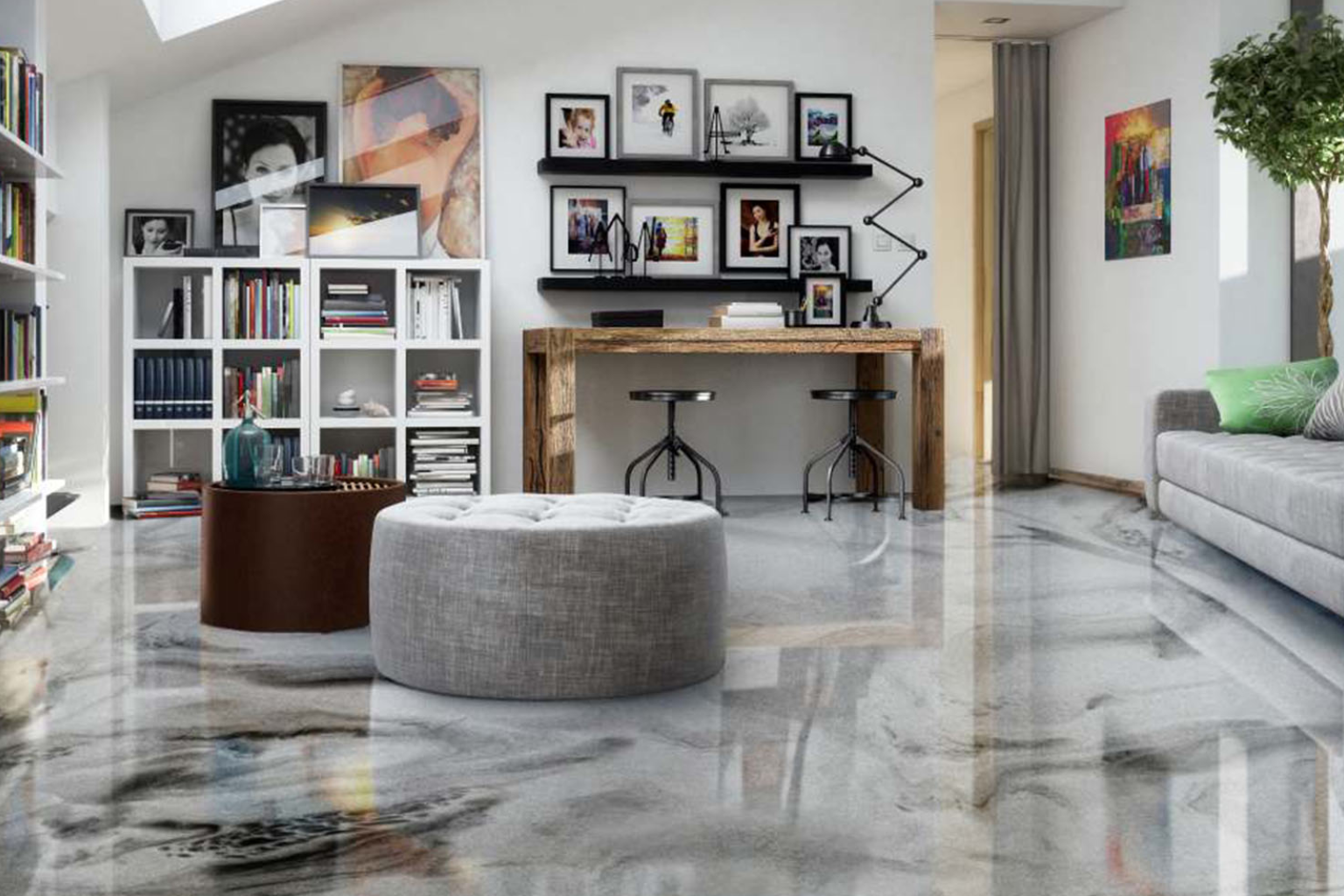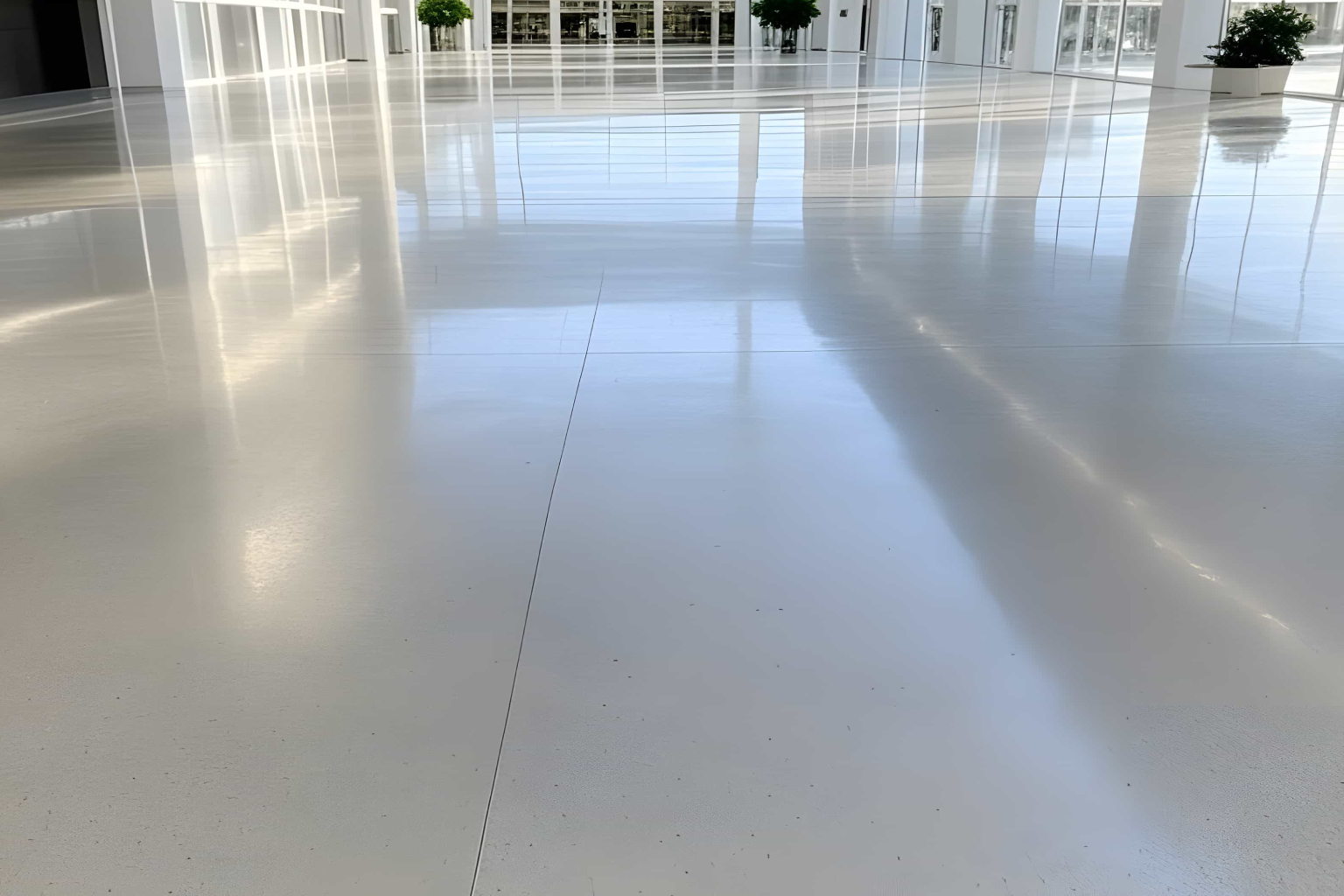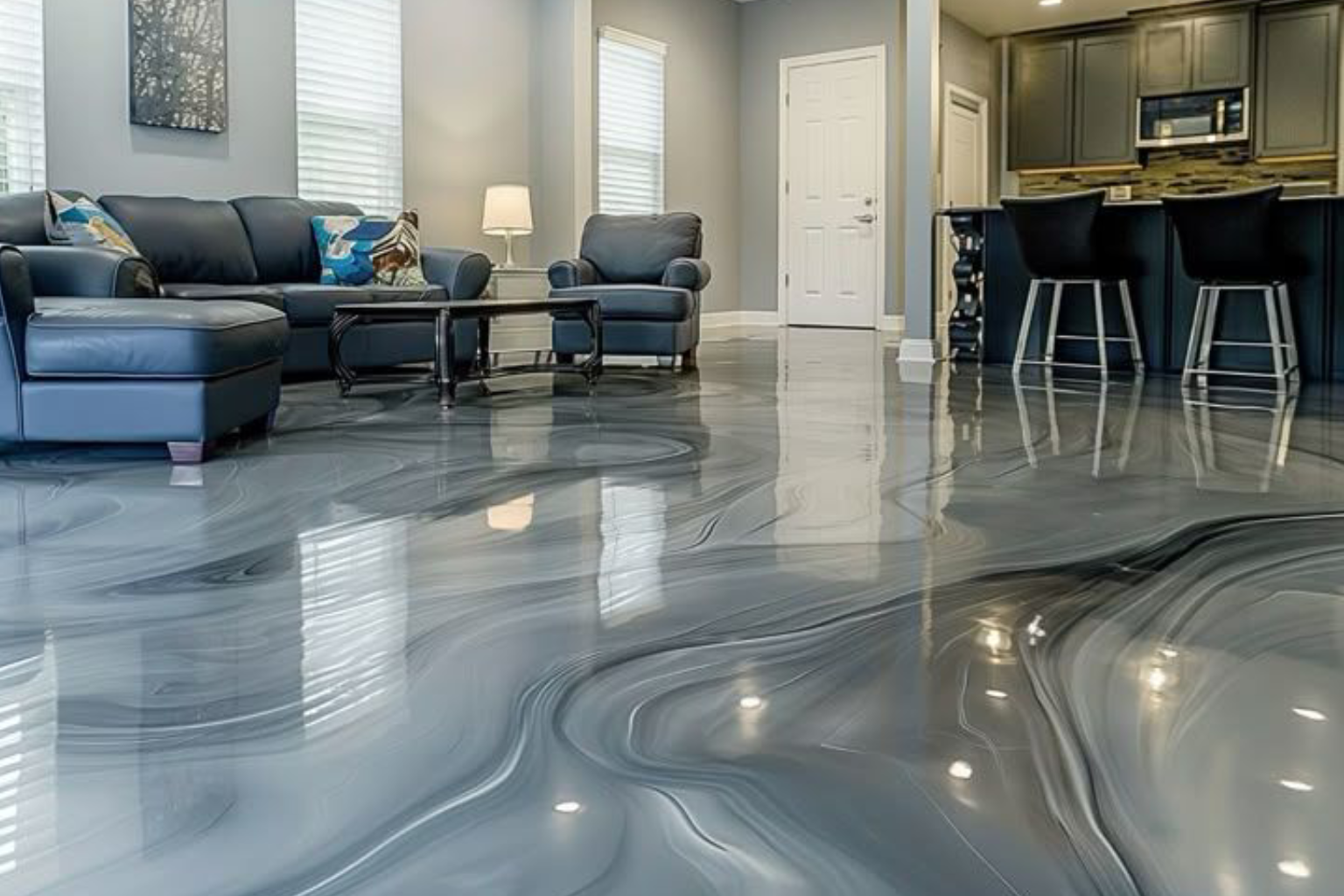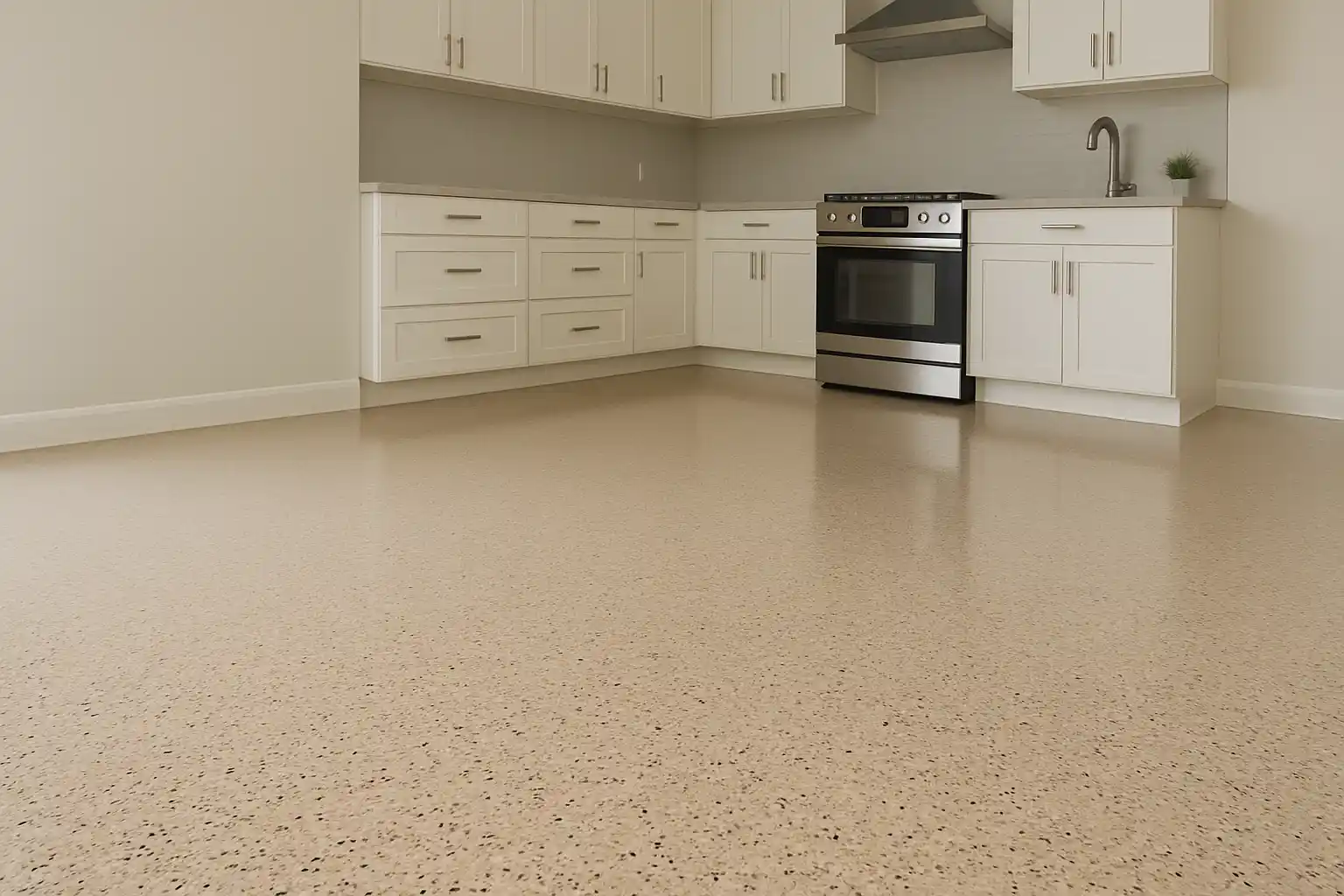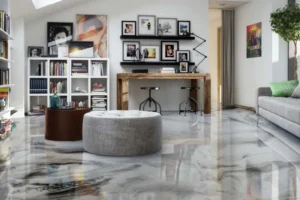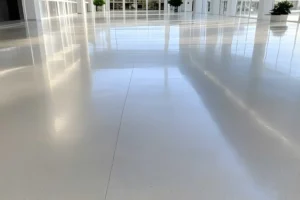Kitchens truly are the centre of every space, whether it’s a home or a commercial area. Therefore, flooring plays a huge role in defining both its style and practicality. Durability and charming looks are non-negotiable, no matter whether you’re upgrading your home or a commercial kitchen. So, is epoxy good for kitchen floor use? The short answer is absolutely.
In this epoxy flooring guide, we’ll explore why this kitchen floor epoxy is becoming one of the most trusted kitchen flooring solutions. We’ll also see how they compare to traditional options like tile or vinyl. After that, we’ll discuss its costs so that you can have an idea of what makes epoxy floors in the kitchen the perfect choice for you.
Why Epoxy Floors Are Transformative for Kitchens
Epoxy flooring is transforming the way we think about kitchen surfaces, whether it’s in a busy restaurant or a home. It’s not like traditional materials that wear down with daily spills and foot traffic. In fact, epoxy floors offer unmatched durability and protection. Let’s have a look at why epoxy flooring in kitchens is a game-changer for today’s kitchens.
1. Seamless, Durable Surface for Busy Kitchens
Epoxy kitchen flooring is a resin-based material that forms a smooth and hard surface when it’s cured. And that’s a huge benefit in high-traffic areas such as kitchens. Dirt or bacteria can’t be trapped since there are no grout lines. This makes the epoxy floor for the kitchen not just visually clean, but hygienically superior.
Epoxy floors for kitchens provide unmatched resistance to scratches and abrasions. Not to mention, you don’t have to worry about moisture and chemical spills anymore.
This makes both residential and commercial epoxy flooring ideal in environments where durability is the main requirement.
2. Resistant to Heat and Heavy Use
Kitchens have to face a lot more compared to the remaining home spaces. Sometimes it’s boiling liquids and greasy spills. Other times, it has to handle dropped cookware. Epoxy coatings can manage it without warping, bubbling, or staining. That’s because epoxy creates a dense and non-porous layer. It stands up to everything from water and wine to oil and acidic sauces.
In commercial settings, especially a kitchen epoxy floor can even withstand heavy foot traffic in addition to wheeled equipment and routine sanitization processes.
3. Stylish and Customizable Designs
Epoxy isn’t like old-style industrial floors anymore. Today’s epoxy kitchen floor options offer incredible design flexibility. You can find various options between sleek solid colors to glossy finishes. Faux marble effects and metallic flake blends are also in demand these days. You can easily match your kitchen’s design style, even if it’s modern or classy.
In fact, you can explore different types of epoxy flooring according to your choice. These can be metallic or flake systems. It depends on what you prefer and what you select.
Epoxy Kitchen Floor Cost
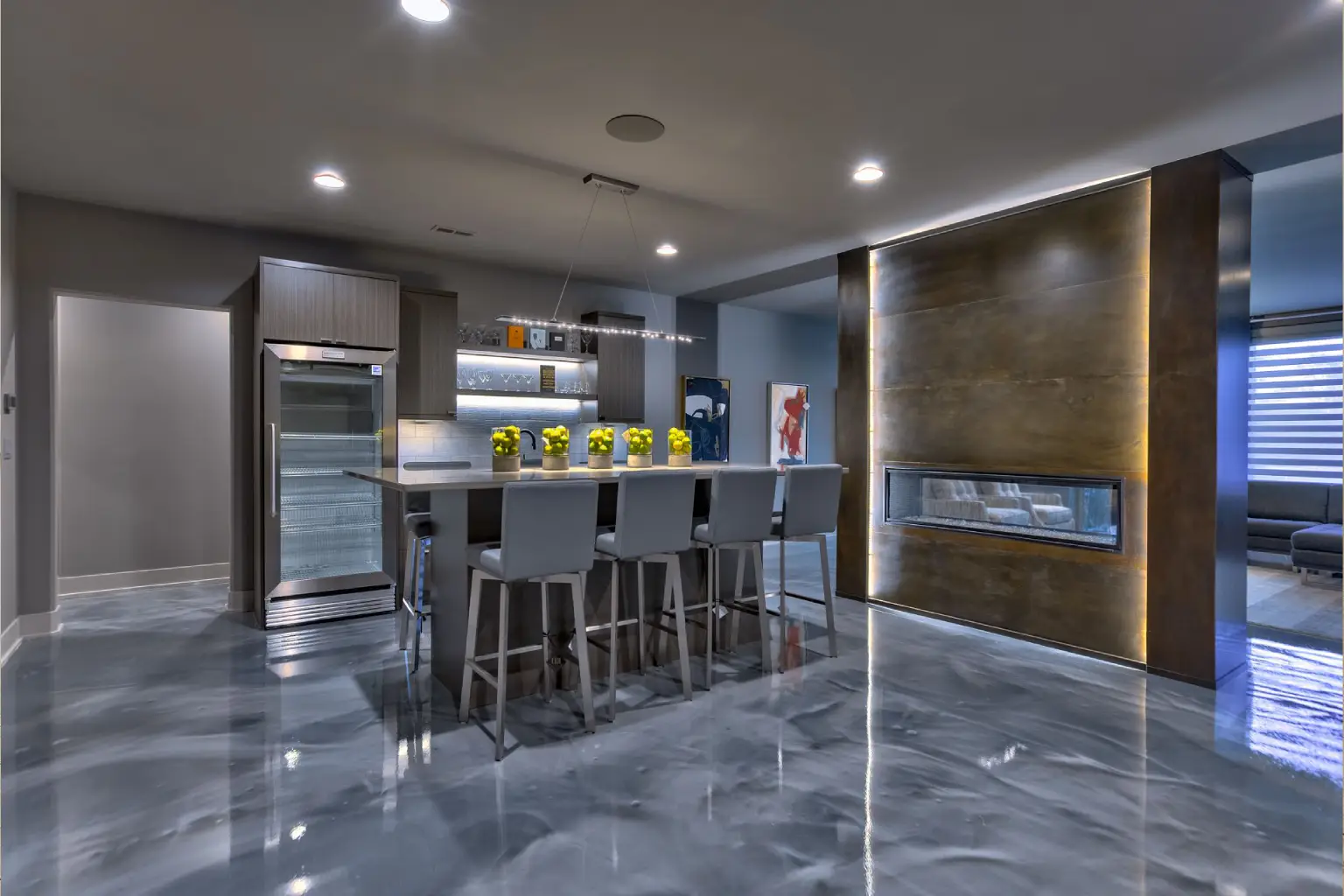
Curious about how much epoxy flooring for a kitchen will cost you in 2025? Doubtless to say, its pricing depends on a number of factors. However, epoxy remains among the most budget-friendly solutions in the long run.
Most homeowners and commercial kitchen operators pay somewhere between $4 and $12 per square foot when they get epoxy floor installation. This includes materials and labor. Nevertheless, several key variables can impact your epoxy kitchen floor cost:
- Kitchen Size: Larger kitchens require more material and time.
- Epoxy Type: Cost varies with the types, such as Metallic, flake, quartz systems, MMA flooring, and standard coatings.
- Surface Condition: Damaged or uneven concrete may need extra prep work.
- Customization: Decorative finishes and topcoats add to the final cost.
- Professional Installation: Labor rates change according to region and installer experience.
Epoxy Flooring vs Traditional Flooring: Why Epoxy Wins
Epoxy is a smart and long-lasting upgrade that has both beauty and performance. And, it’s something every kitchen deserves. Are you still confused among the various flooring options for your kitchen?
Let’s compare epoxy vs vinyl floors along with tiles & hardwood so that you know that epoxy clearly offers a strong balance of performance and aesthetics. This makes it an excellent option when choosing epoxy flooring for your kitchen over traditional materials.
| Feature | Epoxy | Tile | Vinyl | Hardwood |
|---|---|---|---|---|
| Water Resistance | Excellent | Moderate | Good | Poor |
| Heat Resistance | High | High | Low–Moderate | Moderate |
| Seamlessness | Seamless | Grouted (seams) | Seamed | Seamed |
| Maintenance | Low | Medium | Medium | High |
| Aesthetic Options | Highly Customizable | Limited | Moderate | Natural |
| Cost (Per Sq Ft) | $4–$12 | $6–$20 | $3–$7 | $8–$20 |
Epoxy Floor Installation in Kitchens
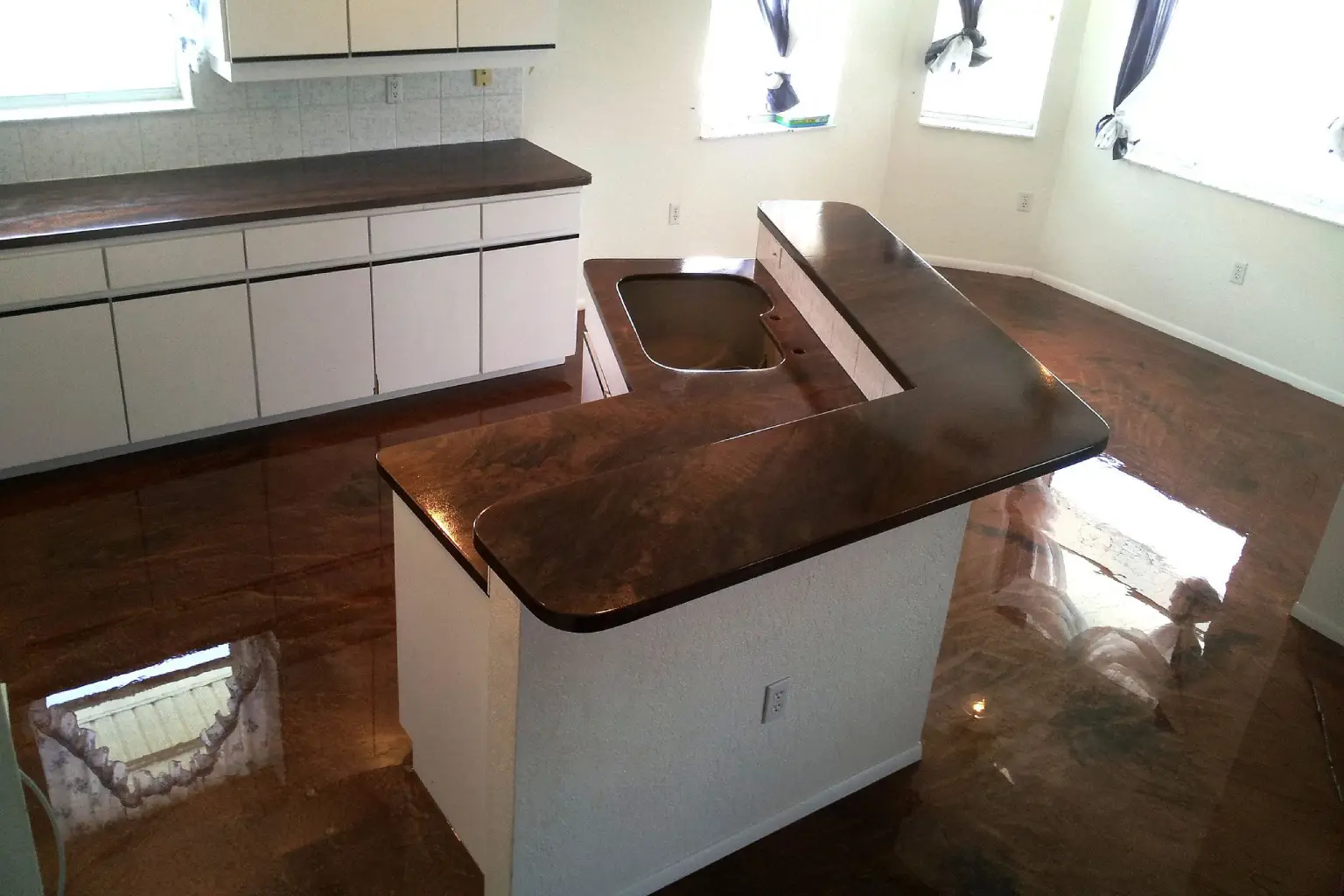
A proper epoxy floor kitchen installation is a necessity in case you want to unlock the full potential of your kitchen floor. Professional installation means you get long-term performance and visual appeal, whether it’s a home or a commercial renovation.
The installation of kitchen epoxy flooring isn’t a DIY task that anyone can do. It involves a thorough process that guarantees proper adhesion:
- Surface Cleaning & Preparation: Installers clean the existing concrete surface. After that, they dry it in case there is grease or contaminants.
- Concrete Repair (If Needed): Sometimes, installers have to patch the cracks and surface imperfections to create a smooth foundation.
- Primer Application: A quality epoxy floors kitchen primer improves adhesion. It is applied to prevent bubbles or peeling.
- Epoxy Floor Coating Application: Professionals pour the main layer of epoxy resin flooring for the kitchen on the existing surface. Then, they spread it evenly across the area.
- Topcoat (Optional but Recommended): A UV-resistant topcoat increases durability. Installers add it to give a professional finish.
A trained epoxy kitchen flooring installer makes all the difference. They prepare the floor properly. They take their time in preparing to lay down each layer of epoxy. The result is a great-looking, smooth, durable kitchen floor. When done by professionals, you are guaranteed a floor that is both durable and attractive.
Epoxy Kitchen Floor Maintenance Tips
- Use your broom or mop regularly to keep the floor clean.
- For difficult stains, use mild soap and warm water.
- Do NOT use cleaners that are harsh or wax, as they are not necessary.
- Avoid dragging heavy or sharp objects across the floor to avoid scratches.
- Place rugs and mats near the stove or sink to help avoid wear.
- With minimal care, you should enjoy the shine of an epoxy floor for many years.
Final Thoughts: Should You Get Epoxy for Your Kitchen Floor?
In the end, epoxy kitchen flooring might just be the best choice for you in case you’re looking for a floor that can handle everything and still manages to look stunning. It’s stylish and long-lasting. Moreover, epoxy floor cleaning is super easy, which makes it a smart investment whether you’re designing a dream kitchen or a busy commercial area.
In fact, epoxy meets all the right criteria for modern and efficient flooring, ranging from residential kitchen epoxy flooring makeovers to commercial kitchen epoxy flooring.
FAQs About Epoxy Kitchen Flooring
Is epoxy flooring suitable for kitchen areas?
Both residential and commercial kitchens can look great if you install epoxy, as it has a durable and seamless surface. Moreover, it can handle chemical resistance.
Does epoxy flooring withstand the heat and spills of a kitchen?
Epoxy can manage heat and hot spills with ease. Hence, it makes it an ideal material for the heat-intensive environment of kitchens.
Is epoxy better than tile or vinyl for kitchens?
Epoxy offers better water resistance and easier maintenance compared to tile or vinyl. Moreover, it’s way more economical than traditional floors even though it has incredible properties.
How long does epoxy flooring last in a kitchen?
Epoxy flooring can work for about 20 to 25 years or more when you hire professionals to install it. Moreover, it works longer when it’s properly maintained.
Is epoxy flooring safe for kitchens?
Epoxy is non-toxic when it is properly cured. It can even be enhanced with anti-slip additives for safer use in wet kitchen environments.
Can I install epoxy flooring in my kitchen myself?
DIY epoxy kits exist. However, hire Epoxy Shine for the best results for kitchens. It’s specifically to avoid adhesion failures or uneven coating.
Is epoxy flooring eco-friendly and safe for food areas?
Many epoxy systems are low-VOC when they’re cured. Also, they’re safe for food-prep areas. You just need to be sure that the product is certified for kitchen or food-packaging environments.
How to clean epoxy kitchen floors?
You can use a soft mop along with a mild detergent to clean epoxy kitchen floors. However, we strongly advise that you avoid harsh chemical tools. Moreover, you can preserve its shine and cleanliness with routine maintenance.



